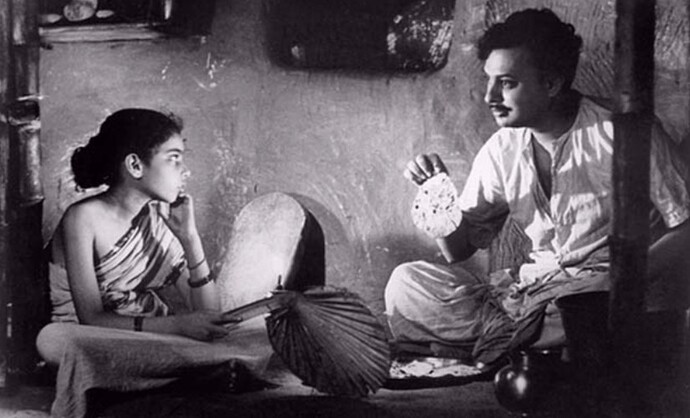The Postmaster
偶然读到,当然是从泰戈尔的母语孟加拉语翻译成英文的,译者William Radice
此篇颇符合胡适眼中“真正的短篇小说”皆有的两大特点:撷取一历史背景的某一横截面为题材,用最经济的文字手段写成仍能让人满意的作品。
In the patriarchal society of India, where child marriage was prevalent in Tagore’s time, and still is in much of the country, it is always women and girls that play the role of the victim in a relationship: Ratan became disillusioned with her Dadababu’s untold affections, and a “late” marriage that was later than other girls although she was only twelve or thirteen, and a better life in the big city of Calcutta; Kadambari Devi, Tagore’s sister-in-law, committed suicide for, in all probability, unbearable pressure from the family, after she knew that Tagore, who was nearly the same age as her and whose poetry she liked and heart she could feel and touch, married an eight-year-old and ceased to be her spiritual companion. There would be many other real-life stories to be told if you were willing to lend a sympathetic ear.
The end of this story seems to have revealed its moral, that is, people tend to vainly cling to hope that has evidently been torn asunder. But Tagore’s meditations on, and even his personal antipathy to, the institution of child marriage are also manifest among the lines, among his tender and careful rendition of Ratan’s innocent acts and the young postmaster’s understandable detachment from this “leftover” village girl. Tagore was one of the first Indian intellectuals who publicly voiced their disapproval of child marriage, although he married his own daughters off at an early age.
